Course
15 Best Machine Learning Books to Read in 2023
If you’re interested in data science, you will probably have heard of machine learning. Machine learning is a branch of artificial intelligence focused on developing algorithms that learn to perform tasks without explicitly being programmed.
From Spotify recommendations to Instagram filters, machine learning is embedded in your everyday life. The rising use of machine learning systems is leading to an increasing demand for data professionals with machine learning skills.
If you want to get started in the field or take your expertise to the next level, we have prepared a list of top machine learning books to read in 2022. Now, let’s get started!
Best Machine Learning Books Summary
Best for absolute beginners:
- Machine Learning for Absolute Beginners by Oliver Theobald
-
The Hundred-Page Machine Learning Book by Andriy Burkov
-
Machine Learning for Dummies by John Paul Mueller and Luca Massaron
Best for beginners with python experience:
- Introduction to Machine Learning with Python: A Guide for Data Scientists by Andreas C. Müller and Sarah Guido
-
Hands-On Machine Learning with Scikit-Learn, Keras, and TensorFlow: Concepts, Tools, and Techniques to Build Intelligent Systems by Aurélien Géron
Best for programmers without theoretical knowledge:
-
Machine Learning for Hackers by Drew Conway and John Myles White
-
AI and Machine Learning For Coders: A Programmer's Guide to Artificial Intelligence by Laurence Moroney
-
Machine Learning in Action by Peter Harrington
Best for more indepth theory:
-
Fundamentals of Machine Learning for Predictive Data Analytics: Algorithms, Worked Examples, and Case Studies by John D. Kelleher, Brian Mac Namee, and Aoife D'Arcy
-
Data Mining: Practical Machine Learning Tools and Techniques by Ian H. Witten, Eibe Frank, Mark A. Hall and Christopher J. Pal
Best for advanced learners:
-
Artificial Intelligence: A Modern Approach by Stuart Rusell and Peter Norvig
-
Machine Learning: A Probabilistic Perspective by Kevin P. Murphy
-
Advanced Machine Learning with Python: Solve data science problems by mastering cutting-edge machine learning techniques in Python by John Hearty
-
Reinforcement Learning: An Introduction by Richard S. Sutton and Andrew G. Barto
-
Causal Inference in Statistics: A Primer by Judea Pearl, Madelyn Glymour and Nicholas P. Jewell
Best Machine Learning Books for Absolute Beginners
Machine Learning for Absolute Beginners by Oliver Theobald
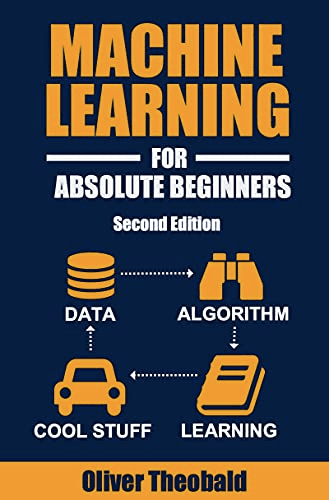
If you are an absolute beginner and want to learn the basics of machine learning, this is what you are looking for. Machine Learning for Absolute Beginners is dedicated to those with no coding experience or background in maths. It’s also written in accessible, plain English, meaning that you won’t get overwhelmed by technical jargon.
The third edition of the book, published in 2021, features extended chapters with quizzes, free supplementary online video tutorials for coding models in Python, downloadable coding exercises, and other resources. In sum, a great book that makes machine learning accessible for everyone.
The Hundred-Page Machine Learning Book by Andriy Burkov
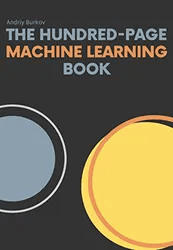
The hundred-page machine learning book by Andry Burkov is the perfect book to discover machine learning without getting into nitty-gritty details. It’s not easy to summarize the core elements of a complex and broad discipline like machine learning. That’s why Andriy Burkov’s work is even more laudable.
After reading the book, you’ll be ready to discuss all kinds of topics related to machine learning, including supervised and unsupervised learning, the most popular machine learning algorithms, and what it takes to build and fine-tune a model. Math, intuition, and illustrations, all in just a hundred pages!
If you are interested in the theoretical foundations of machine learning—we highly recommend you enroll in our Understanding Machine Learning course.
Machine Learning for Dummies by John Paul Mueller and Luca Massaron
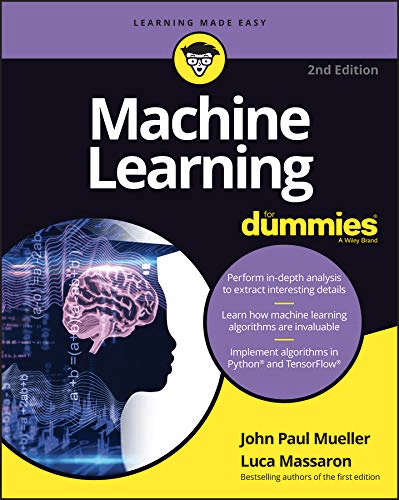
It’s always great news that the popular “Dummies” series has come with a book on the topic. Written by top data scientists, Machine Learning for dummies offers a great starting point for those with no coding and math background.
The book presents the key concepts and theories behind machine learning and how it is applied in the real world, providing many examples, including fraud detection, search results, real-time ads, and many more. It also offers a lightweight introduction to the most common programming languages and tools used in machine learning.
Best Machine Learning Books for Beginners with Python Experience
Introduction to Machine Learning with Python: A Guide for Data Scientists by Andreas C. Müller and Sarah Guido
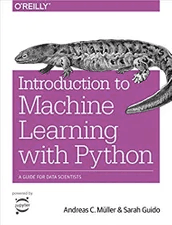
If you have Python skills and are looking to grow your machine learning skills, this book is for you. Introduction to Machine Learning with Python is one of the best resources to build the fundamentals for working with machine learning in Python.
Co-authored by world-class data scientists Andreas C. Müller and Sara Guido, the book teaches foundational machine learning concepts and algorithms. It also introduces the machine learning workflow and provides best practices in tasks ranging from data cleaning to feature engineering. All the concepts presented in the book are illustrated with examples using scikit-learn, Python’s most popular package for machine learning.
Hands-On Machine Learning with Scikit-Learn, Keras, and TensorFlow: Concepts, Tools, and Techniques to Build Intelligent Systems by Aurélien Géron
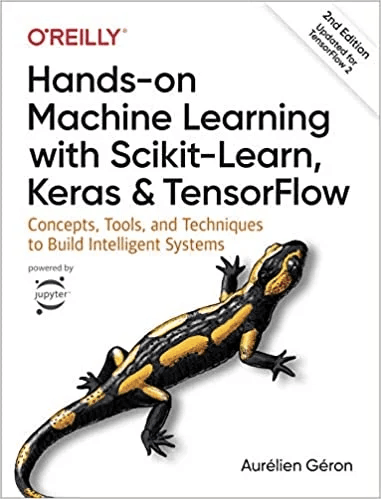
Python machine learning practitioners will love this book. Hands-on Machine Learning with Scikit-Learn, Keras, and TensorFlow is a great resource to get an overview of machine learning and sharpen your practical skills.
Every chapter focuses on one machine learning technique, providing detailed information on the intuition behind it, how it works, what it’s used for, and a good number of Python examples. The book covers not only machine learning but also deep learning, offering a great introduction to Keras and Tensorflow, two of the most popular Python-based frameworks for developing deep learning models.
Best Machine Learning Books for More Indepth Theorey
Fundamentals of Machine Learning for Predictive Data Analytics: Algorithms, Worked Examples, and Case Studies by John D. Kelleher, Brian Mac Namee, and Aoife D'Arcy
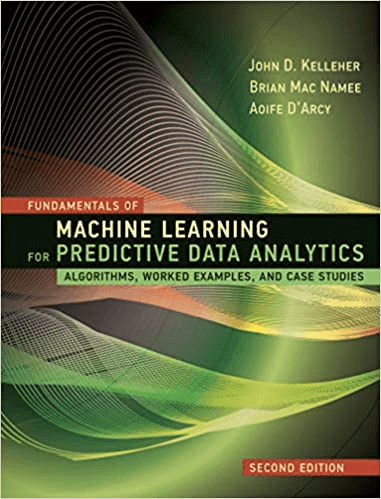
This textbook is especially well-suited for professionals with an analytical background. The second edition of Machine Learning for Predictive Data Analytics provides a comprehensive introduction to machine learning approaches, covering both theory and practice.
The technical and mathematical explanations are supported with detailed examples illustrating the applications of machine learning models in the real world. Examples range from price prediction and risk assessment to document classification and predicting customer behavior. The second edition also incorporates new chapters on deep learning and machine learning techniques beyond predictive analytics, including unsupervised learning and reinforcement learning.
Data Mining: Practical Machine Learning Tools and Techniques by Ian H. Witten, Eibe Frank, Mark A. Hall and Christopher J. Pal
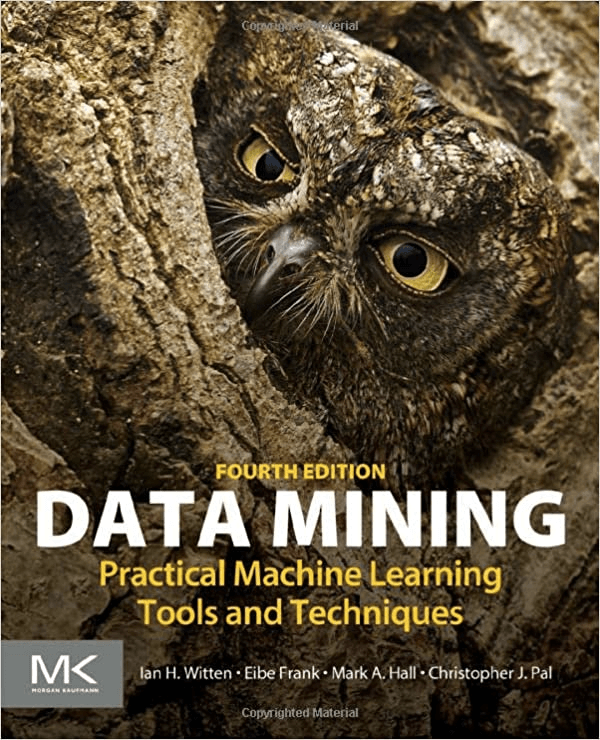
Data Mining: Practical Machine Learning Tools and Techniques offers a highly accessible introduction to machine learning concepts, along with mathematical theory and practical advice on applying these techniques in real-world situations.
The book’s fourth edition includes new chapters to reflect the latest developments in the field, including probabilistic methods and deep learning. It is also worth mentioning that the book comes with the authors’ own software, WEKA, a comprehensive collection of machine learning algorithms for data mining tasks in an easy-to-use interactive interface.
Best Machine Learning Books for Programmers without Theoretical Knowledge
Machine Learning for Hackers by Drew Conway and John Myles White
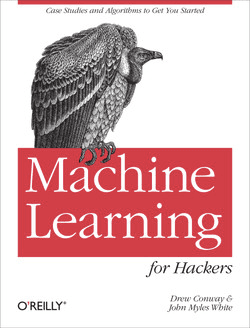
Machine learning is a complex topic because it requires a deep understanding of both coding and math. If you are an experienced programmer who wants to break into machine learning but isn’t well-versed in mathematics, this is the perfect book for you.
Machine Learning for Hackers leaves aside the mathematical theory. It approaches the discipline through hands-on, real-world applications, such as building a recommendation system based on Twitter data and an email spam filter. Using the R programming language, each chapter focuses on a specific problem in machine learning, including classification, prediction, optimization, and recommendation. You can listen to one of the authors, Drew Conway, speak about building data science teams on the DataFramed podcast.
AI and Machine Learning For Coders: A Programmer's Guide to Artificial Intelligence by Laurence Moroney
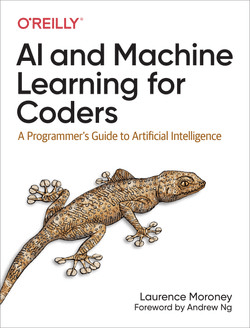
Are you a software developer looking to make a career move and break into artificial intelligence and machine learning? This book is an ideal starting point. AI and Machine Learning for Coders is based on Laurance Monorey’s popular AI courses, providing an accessible introduction to machine learning through a hands-on, code-first approach. Each chapter presents a practical use case to illustrate the different scenarios where machine learning comes in handy, for example, computer vision, natural language processing, and cloud computing.
Machine Learning in Action by Peter Harrington
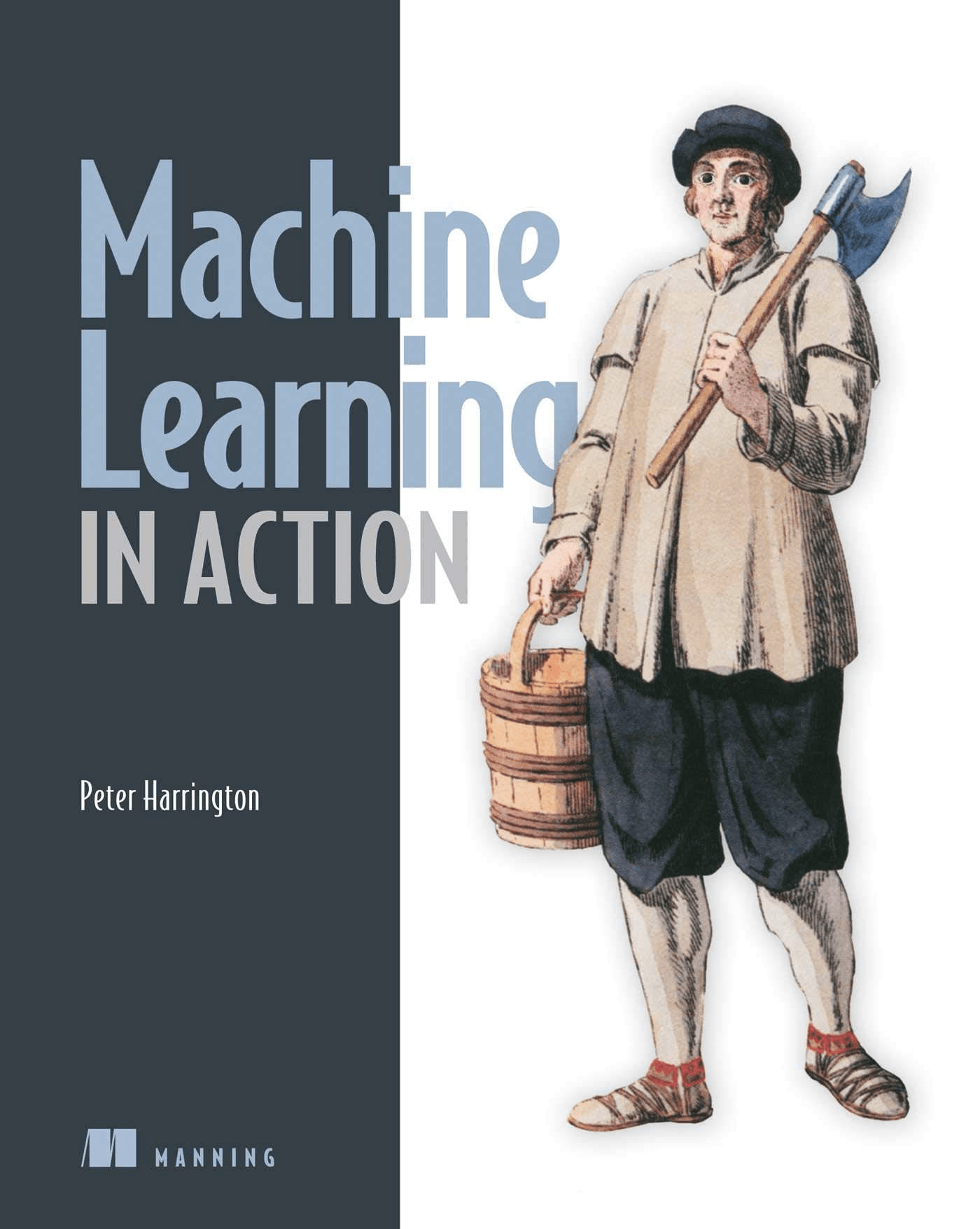
In the same vein as the previous two books, Machine Learning in Action by Peter Harrington provides an excellent tutorial for IT professionals willing to learn the foundations of machine learning. It avoids academic language and takes you straight to the techniques you'll use in your day-to-day work. The book is full of Python-based examples to present the core machine learning algorithms and tasks, including data preprocessing, data analysis, and data visualization.
Best Machine Learning Books for Advanced Learners
Artificial Intelligence: A Modern Approach by Stuart Rusell and Peter Norvig
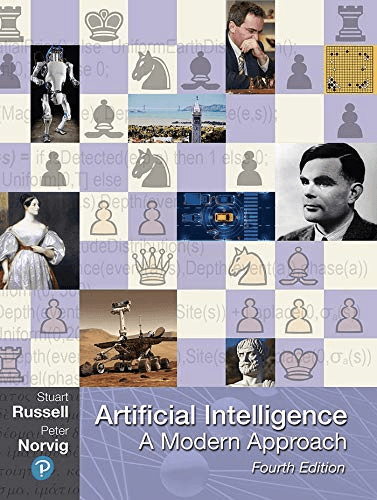
If you only own one book on artificial intelligence, this is the one you should have. Considered a classic in the field, Artificial Intelligence: A Modern Approach by world-class experts Stuart Rusell and Peter Norvig is one of the most comprehensive, up-to-date introductions to the theory and practice of artificial intelligence.
The fourth edition of the book offers new and expanded coverage of machine learning, deep learning, robotics, natural language processing, and many other technical concepts, as well as other topics that are intrinsically related to the field, including privacy, fairness, and ethical AI. The book also includes pseudo-code versions of all the major AI algorithms, presented clearly and uniformly.
Machine Learning: A Probabilistic Perspective by Kevin P. Murphy
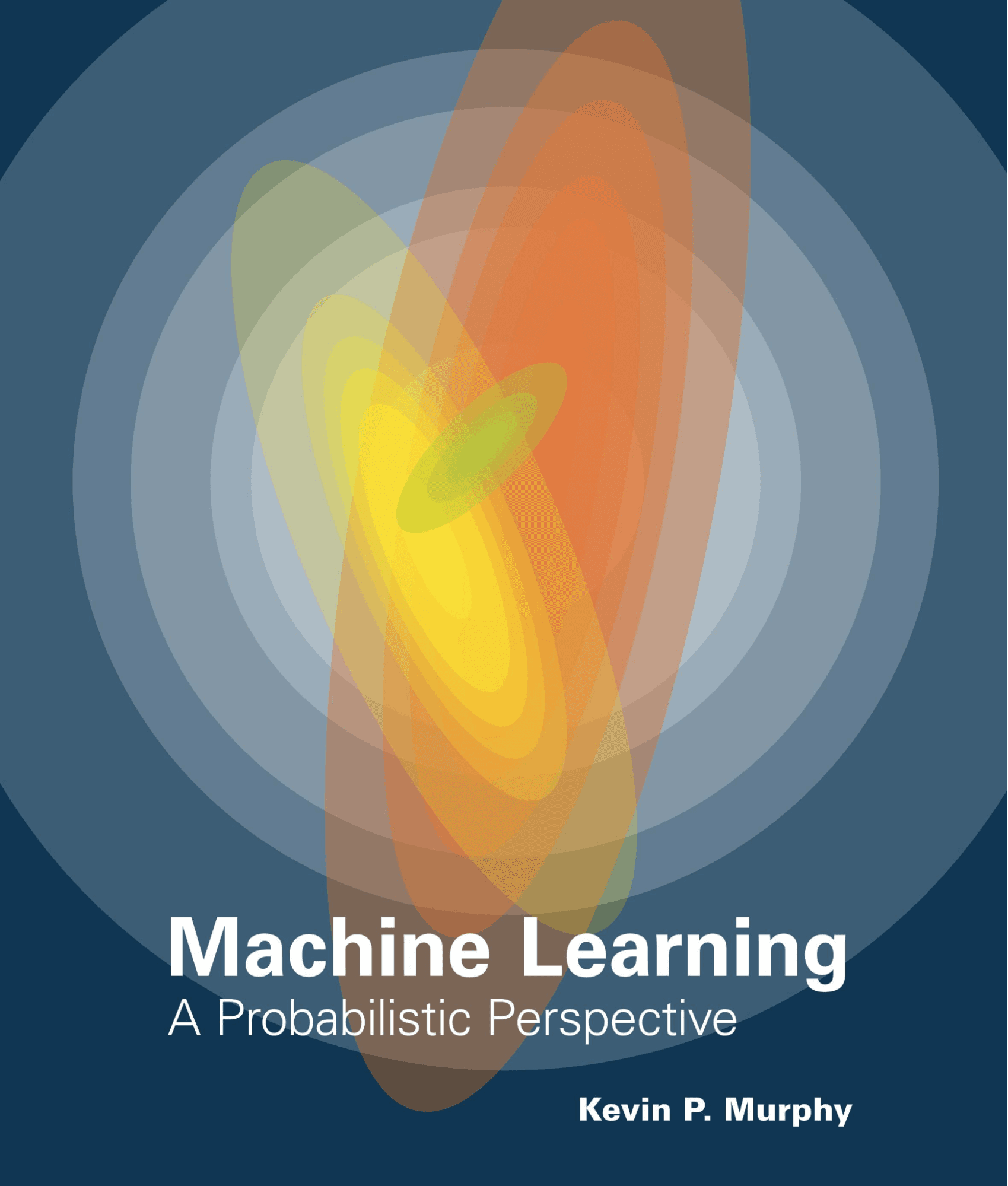
Published in 2012 and winner of the 2013 DeGroot Prize awarded by the International Society for Bayesian Analysis, this book is a classic for those interested in the mathematical foundations of machine learning.
Machine learning: a probabilistic perspective by Kevin P. Murphy, a research scientist at Google, is a journey through the mathematics behind the most common machine learning algorithms. It offers an informal yet detailed explanation of key topics, such as probability, optimization, and linear algebra. The book contains complete pseudo-code for the most important algorithms, images, and examples covering machine learning domain applications in biology, computer vision, robotics, and so on.
Advanced Machine Learning with Python: Solve data science problems by mastering cutting-edge machine learning techniques in Python by John Hearty
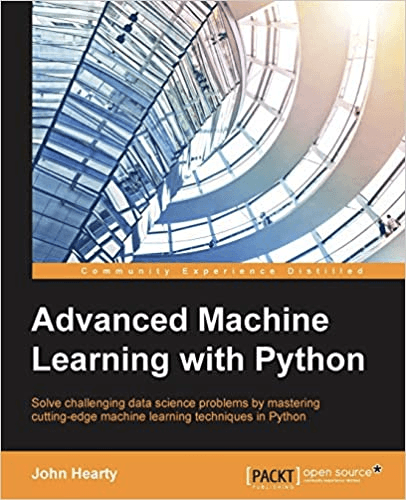
Advanced Machine Learning with Python is a guide through the most relevant and powerful machine learning algorithms. The book has many detailed code samples working with real-world applications. Covering some of the most innovative machine learning techniques to deal with all kinds of unstructured data, including images, music, text, and financial data, the book is an excellent resource for those machine learning practitioners who want to take their skills to the next level.
Reinforcement Learning: An Introduction by Richard S. Sutton and Andrew G. Barto
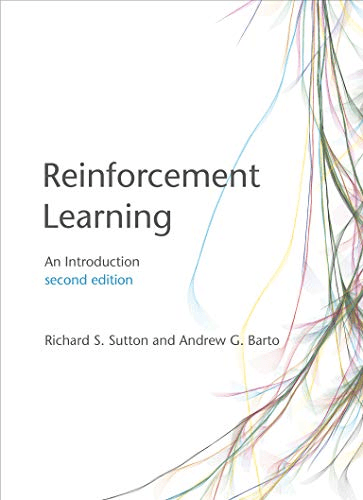
One of the fields in machine learning that has seen more progress recently is reinforcement learning, that is, a method of machine learning where an agent learns to perform certain actions in an environment which lead it to maximum reward. If you’re interested in this field, you should read this book.
Despite the fact that the word “Introduction” appears in the title, Reinforcement Learning provides a thorough account of the key ideas and algorithms of reinforcement learning. The second edition of the book, published in 2018, includes new topics that have appeared in the last few years. Although some parts are quite mathematical, the book is very clear and pleasant to read.
Causal Inference in Statistics: A Primer by Judea Pearl, Madelyn Glymour and Nicholas P. Jewell
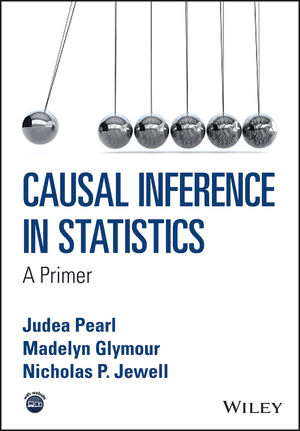
Causal inference is rapidly becoming a major topic in machine learning. That’s why this book deserves a place on this list. Written by some of the major experts in the field, Causal Inference in Statistics contains a comprehensive introduction to the field of causality.
Despite its complex nature, it’s a delightful book, full of examples from classical statistics to illustrate the need for causality to address the decision-making dilemmas that data scientists often encounter.
Speaking about casualty is speaking about the reason why things happen. In this sense, the book is full of thought-provoking questions that will invite you to think more deeply about this important subject.
Become a Machine Learning Expert
Machine learning is one of the most useful skills within data science. There is a growing number of machine learning books that can help you break into the field or become an expert. Beyond books, you can also learn interactively on DataCamp. Check out the following resources:
- A large course catalog covering a variety of machine learning courses, both in Python and R
- Check out our machine learning cheat sheet
- Read our guide on how to become a machine learning engineer
- Get inspired with our guide on the top machine learning interview questions
- Begin your artificial intelligence journey via our learn AI hub
- Listen to the DataFramed podcast
FAQs
What are the best machine learning books for beginners?
Some of the best machine learning books for beginners include "Python Machine Learning" by Sebastian Raschka, "Fundamentals of Machine Learning for Predictive Data Analytics" by John D. Kelleher, Brian Mac Namee, and Aoife D'Arcy, and "Data Mining: Practical Machine Learning Tools and Techniques" by Ian H. Witten, Eibe Frank, Mark A. Hall and Christopher J. Pal.
What are the best advanced machine learning books?
Some of the best machine learning books for advanced learners include "Artificial Intelligence: A Modern Approach" by Stuart Rusell and Peter Norvig, "Machine Learning: A Probabilistic Perspective" by Kevin P. Murphy, "Advanced Machine Learning with Python" by John Hearty, and "Reinforcement Learning: An Introduction" by Richard S. Sutton and Andrew G. Barto.
What resources can I use to learn machine learning interactively?
DataCamp offers a large course catalog covering a variety of machine learning courses, both in Python and R, as well as machine learning cheat sheets and guides on how to begin a career in machine learning.
Machine Learning Courses
Course
Machine Learning with Tree-Based Models in Python
Course